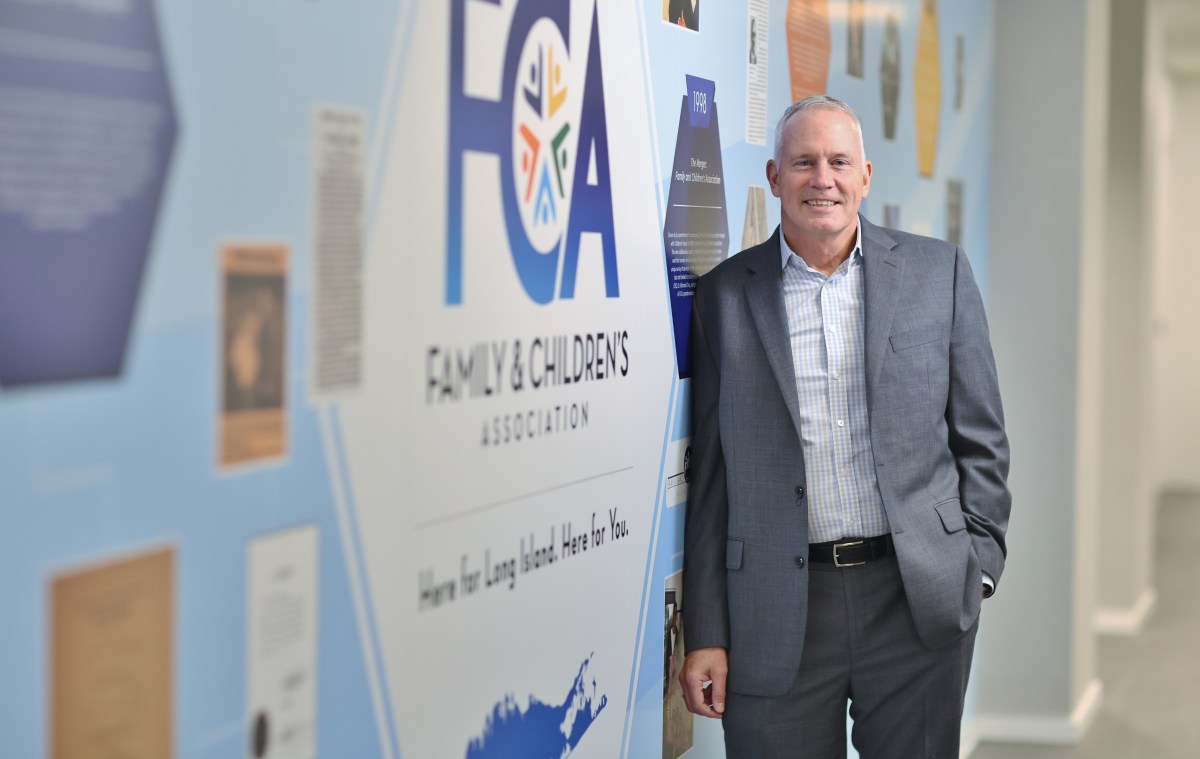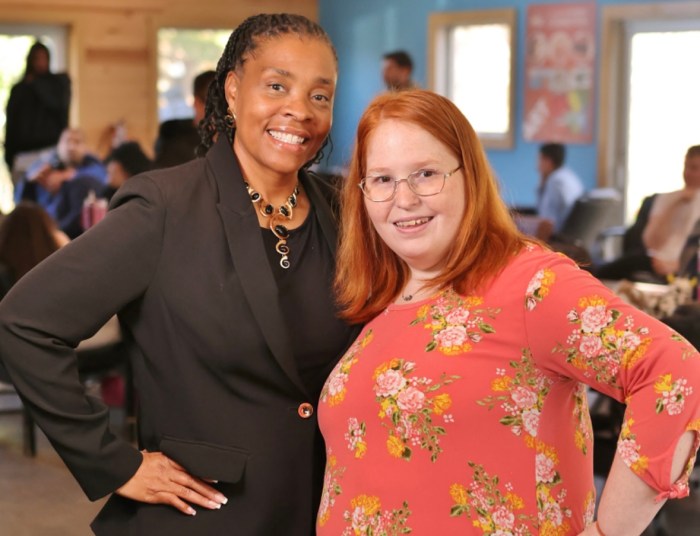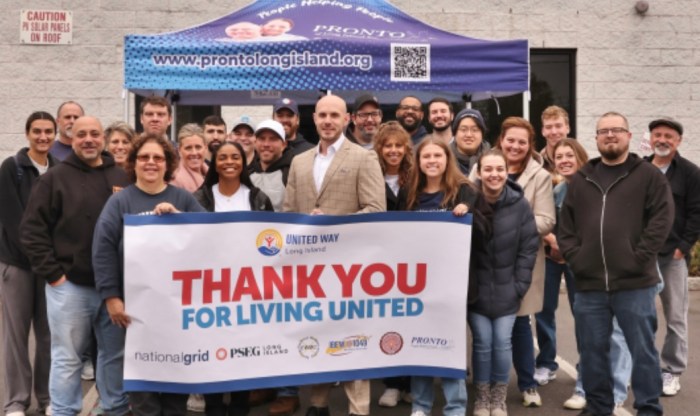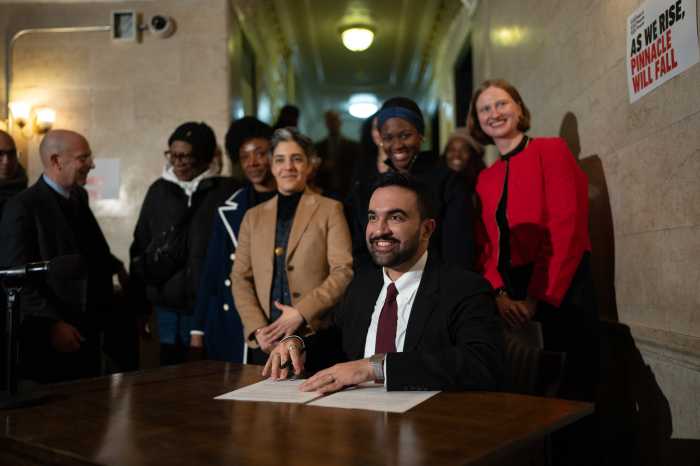As one of the oldest nonprofit organizations on Long Island, FCA – Family & Children’s Association — has a long and storied history of helping people within our communities.
“One hundred forty years ago our founders made a promise to Long Island: The promise was to care for the most vulnerable folks in our community,” says Dr. Jeffrey Reynolds, president and CEO of FCA. “As a leader, I feel that sense of responsibility to keep that promise to maintain the legacy.”
In the past few years under Reynolds’ stewardship, FCA has zeroed in on what the community needs and geared its programming to serve that need.
“We don’t just add programs just to add programs,” Reynolds says. “I have a pretty good sense as to what we’re really good at and what should be left to other organizations. I’ve avoided chasing dollars for the sake of having a bigger budget or being able to employ more people.”
NEW SERVICES: REFLECTING THE NEED
The most pressing problems that weren’t being fully addressed by other organizations or by the government, FCA leaders learned, fell into three main categories: the opioid crisis; gun violence and the surging senior population.
Addressing the opioid crisis — which dovetails with the mental health crisis greatly impacted young people — was an area they felt FCA could continue to make a significant difference in terms of prevention, harm reduction and access to treatment, as well as supporting people in recovery, notes Reynolds.
“The opioid crisis has hit Long Island hard and we wanted to make sure that we were front and center in addressing those issues,” he says.
FCA operates two state licensed outpatient treatment facilities in Hicksville and Hempstead, as well as three recovery centers for people looking to stay on that road — the first of their kind on Long Island, where they’ve treated over 20,000 people.
“I’m proud of the fact that we affirmatively hire people in recovery to lead our services because it’s clear to us that very often the people who are closest to the problems are also closest to the solutions,” Reynolds says. “We want to make sure that those voices are represented and in doing that we’re able better to connect with folks in need but we’re also creating employment opportunities at the same time. It’s almost like achieving two goals simultaneously.”
To deal with the pervasive issue of gun violence, FCA has established a state program called SNUG — GUNS spelled backwards and an acronym for Should Never Use Guns — which employs “credible messengers” who go out into the community to have conversations about retaliatory gun violence, with three locations in Hempstead.
“These are folks that have a history of violence and sometimes have a history of gang membership,” Reynolds says. “They’ve got credibility in the community.”
The single largest growing population on the island are people over the age of 80.
“So we’ve prioritized our senior programs because increasingly you see people doing everything they can to try to stay in their homes. One of the services that’s taken off is our scam prevention services,” says Reynolds, noting that seniors are advised on how to recognize credit card and banking scams.
FCA has a meal delivery program for seniors and has boosted its case management services with an emphasis on early financial planning and mental health services to address depression and alcohol and prescription drug abuse within that population.
“The folks who work in that program are older and have often experienced some of their own mental health challenges,” Reynold says. “In that program we serve about 10,000 seniors a year.”
THE WORK IS PERSONAL
In addition to highlighting developing needs in the community, FCA provides a full complement of services for families through four residential programs, including the only shelter for runaway, homeless and trafficked children in Nassau County.
The organization offers programs to help children transition out of foster care and The Ladders to Success program which helps high school students prepare for self-sufficiency.
“Everything we do is focused on how we increase the health, safety and economic well-being of Long Islanders,” Reynolds says.
With an annual budget of $25 million, FCA has a staff of 340 people, 79% of whom are female, and 68% are people of color.
“We’re very lucky to have a dedicated workforce,” Reynolds says. “We’ve got folks who have worked here for more than 40 years, folks who started yesterday and everything in between.”
One thing that holds true for all of FCA’s diverse employees: their dedication to making a difference in the community and providing help that, in many cases, they themselves once needed.
“For most of us the work is very, very personal and the ability to connect with other people who maybe are enduring what can be considered the worst times of their lives is a gift,” says Reynolds.
Reynolds, whose own mother struggled with chronic alcoholism, has worked in the not-for-profit sector since graduating college, and ran the Long Island Council on Alcohol and Drug Dependence before coming to FCA a decade ago.
From his recent experience of two back-to-back cancer diagnoses, for which he received treatment and is now in remission, Reynolds has learned that many other people have also suffered immeasurable challenges, often without a lot of support.
“This work gives me the opportunity to change some of that,” he says.
EMBRACING THE FUTURE
Perpetually dealing with the precarious nature of funding, the nonprofit sector these days is also bracing for the impact of technology, as well as changes in government and potential policy shifts.
“But our history here helps with that, because it puts everything in perspective, given what the organization has been through,” says Reynolds. “We always look at the future with optimism and keep an eye on trends.”
Like other organizations, FCA remains focused on issues around mental health for children and seniors.
Artificial intelligence is something that can be deployed for financial management and clinical decisions, notes Reynolds.
“I want to make sure that the not-for-profit sector is a part of that,” Reynolds says.
As Long Island undergoes continual expansion and development, Reynolds looks forward to being a part of that transformation.
“I think the key is staying connected to the communities we serve, treating our staff with care, compassion and respect, and just being genuine and authentic in the things that we do publicly and the things that we say privately,” Reynolds says.
PARTNER CONTENT

































